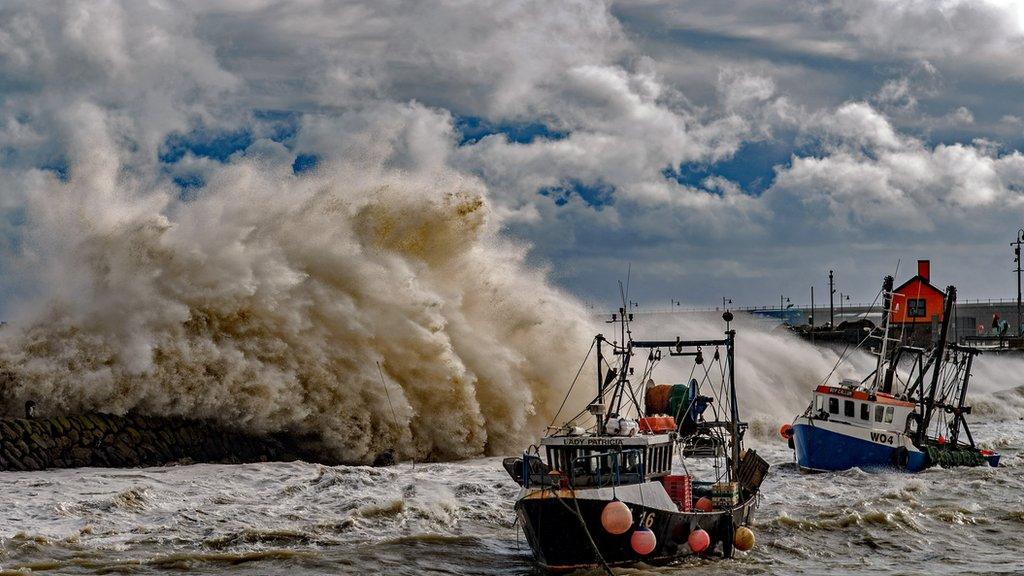Norfolk Broads land still flooded one month after Storm Ciarán
- Published
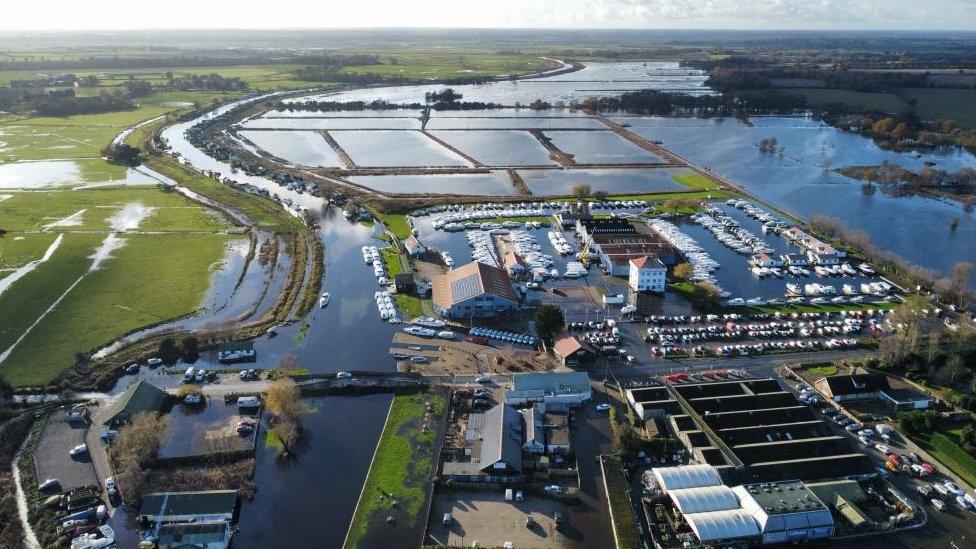
Flooding in Potter Heigham earlier in November showed homes and businesses surrounded by flood water
Land and businesses in an area of the Norfolk Broads remain under water almost a month after Storm Ciarán hit the county.
Water continues to seep into a shop in Potter Heigham from its car park.
The nearby Herbert Woods boatyard has pumps running to clear water from its workshops and car park.
Norfolk County Council, the local internal drainage board, the Broads Authority and Environment Agency all denied responsibility for the issues.
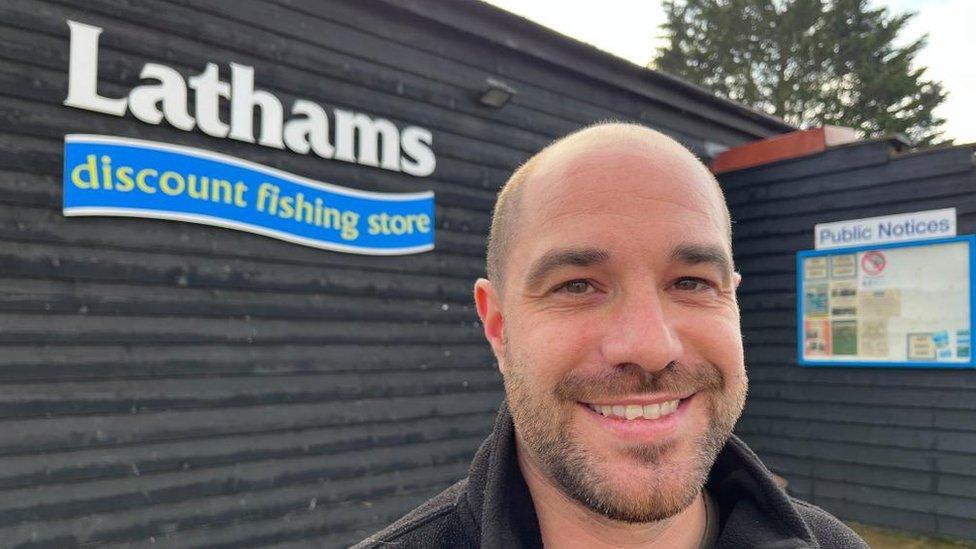
Simon Pritchard, manager of Lathams Discount Fishing Store, speculated that high tides and salt water incursions were the cause
Simon Pritchard, 33, manager of Lathams Discount Fishing Store, said he believed the problem was caused by a combination of rain and tides.
"A lot of our customers feel the main issue is dredging, both of the dykes and broads themselves," he said.
"This time of year we always do expect big tides and we get a lot of salt water incursions into the broads which does affect the fishing as well, but I think it's a combination of both."
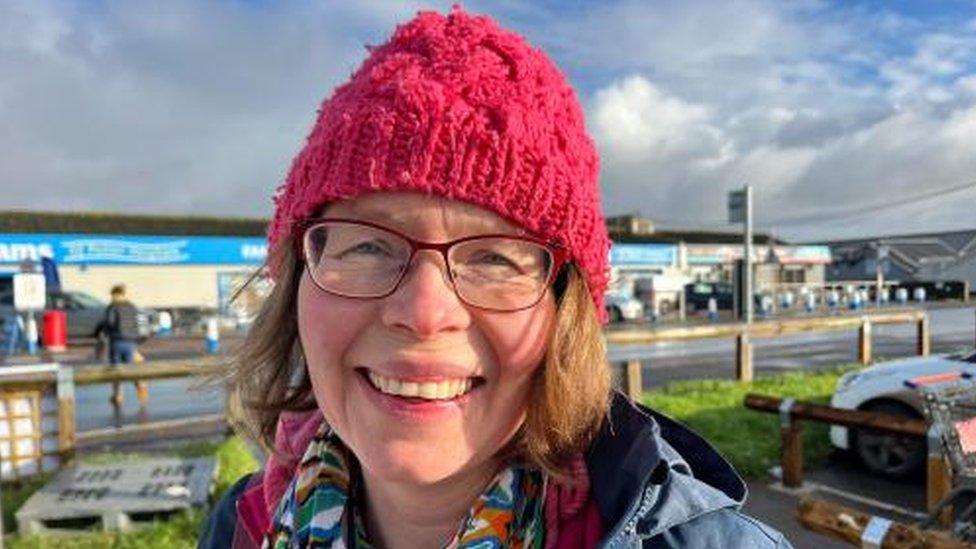
Emma Tacon says creating farmland marshes are part of the solution
Farmer and farm shop owner Emma Tacon, from nearby Rollesby, said creating farmland on the marshes was a vital part of flood prevention.
"I don't think there's one solution," said the 45-year-old.
"I think we have got [to learn] to live with it because the weather is turning more extreme and [we need to] create more flood plains. The farmers are willing; we just need to make it happen.
"That's what the marshes are for, for holding water.
"If they weren't wet in the winter we'd be growing wheat on them, so let's use the marshes, flood them in the winter, graze them in the summer."
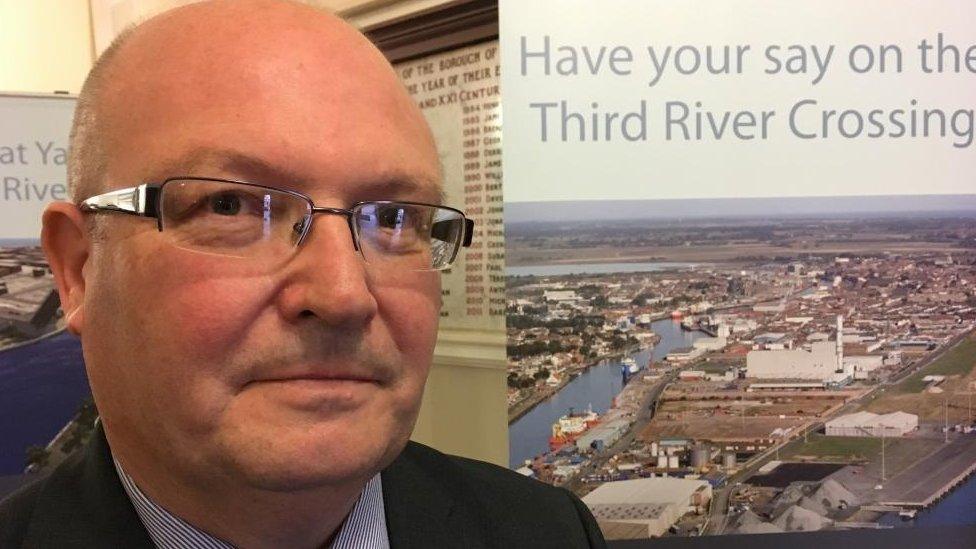
Graham Plant says the Herring Bridge has not impeded water exiting the Norfolk Broads network
A recent report in the Eastern Daily Press, external speculated whether the new Herring Bridge in Great Yarmouth had contributed to the flooding, but the claim was "strongly refuted" by the county council.
Graham Plant, the Conservative cabinet member for highways, infrastructure and transport at the county council, said: "There are two main reasons why some communities in the broads are currently seeing higher water levels for far longer than usual after recent flooding incidents.
"These are the extensive rainfall from a series of storms which led to wide areas in the broads catchment being fully saturated and a sequence of high tides which has had a tide locking effect on the main rivers, meaning that the catchment could not drain effectively."
'Total pumping capacity'
Tom Hunter, area manager for the Water Management Alliance, refuted claims that pumps belonging to the local internal drainage board had failed.
He said there were 14 pumping stations that discharged water from the low-lying catchments into the River Thurne and in the areas affected by flooding they had been "running continuously at full capacity".
He said there were briefly issues with two individual pumps.
"Throughout this period we have had mobile pumps in operation and therefore been able to maintain our total pumping capacity," he said.
The Broads Authority said it was not responsible but worked with the Environment Agency, which has "the statutory responsibility for flood alleviation".
It said it carried out a year-round dredging programme but this offered "little protection in flood-prone areas".
"It is a common misconception that more dredging will alleviate flooding in tidal river systems," a Broads Authority spokesman said.
An Environment Agency spokesman told the BBC it was not responsible for flooding on the broads.

Follow East of England news on Facebook, external, Instagram, external and X, external. Got a story? Email eastofenglandnews@bbc.co.uk or WhatsApp 0800 169 1830
Related topics
- Published29 November 2023
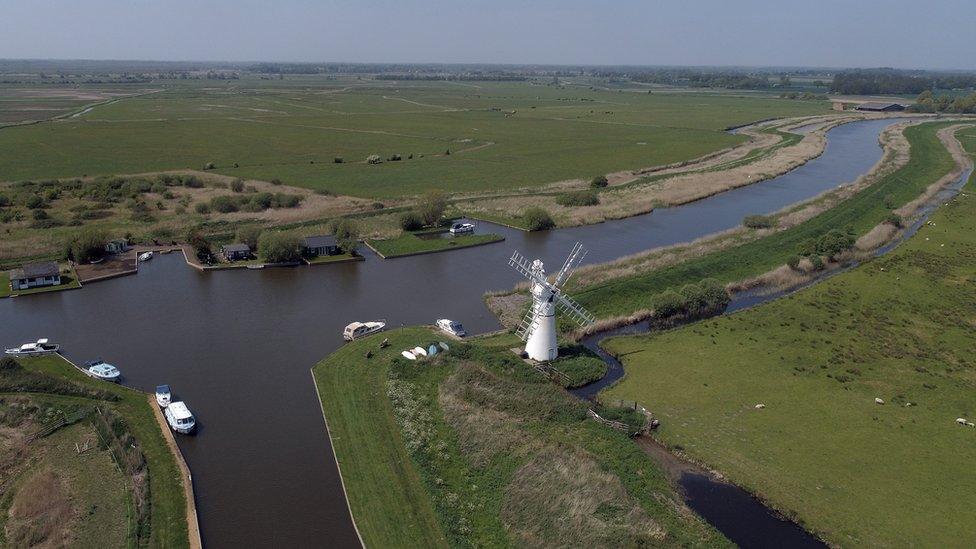
- Published8 November 2023
- Published2 November 2023
